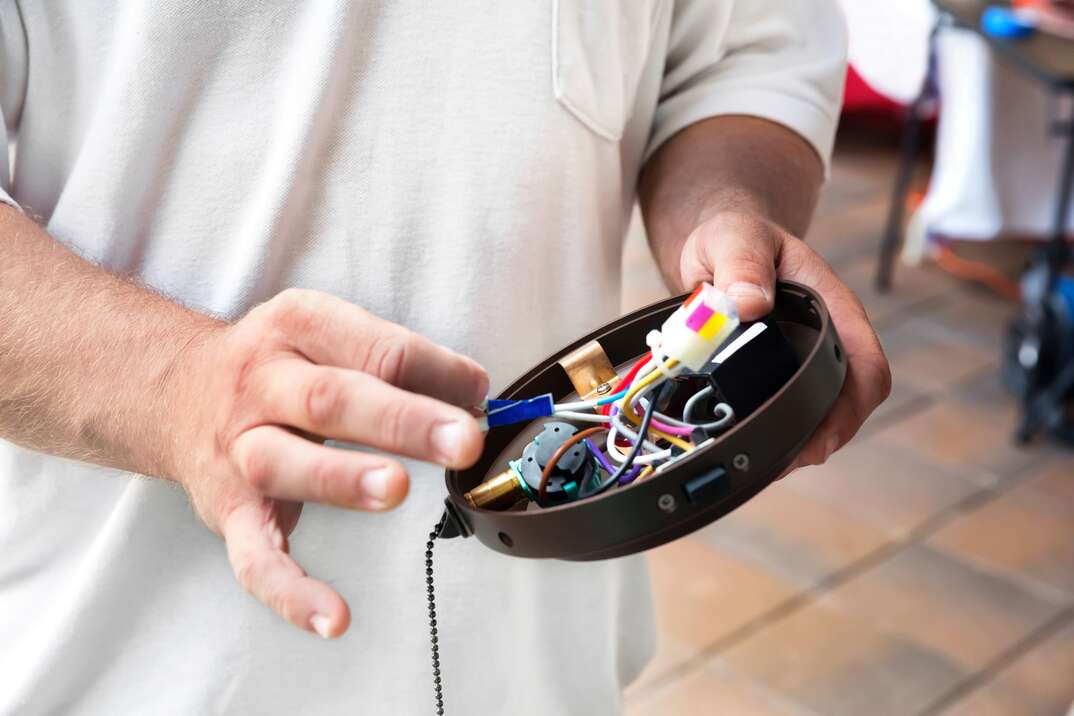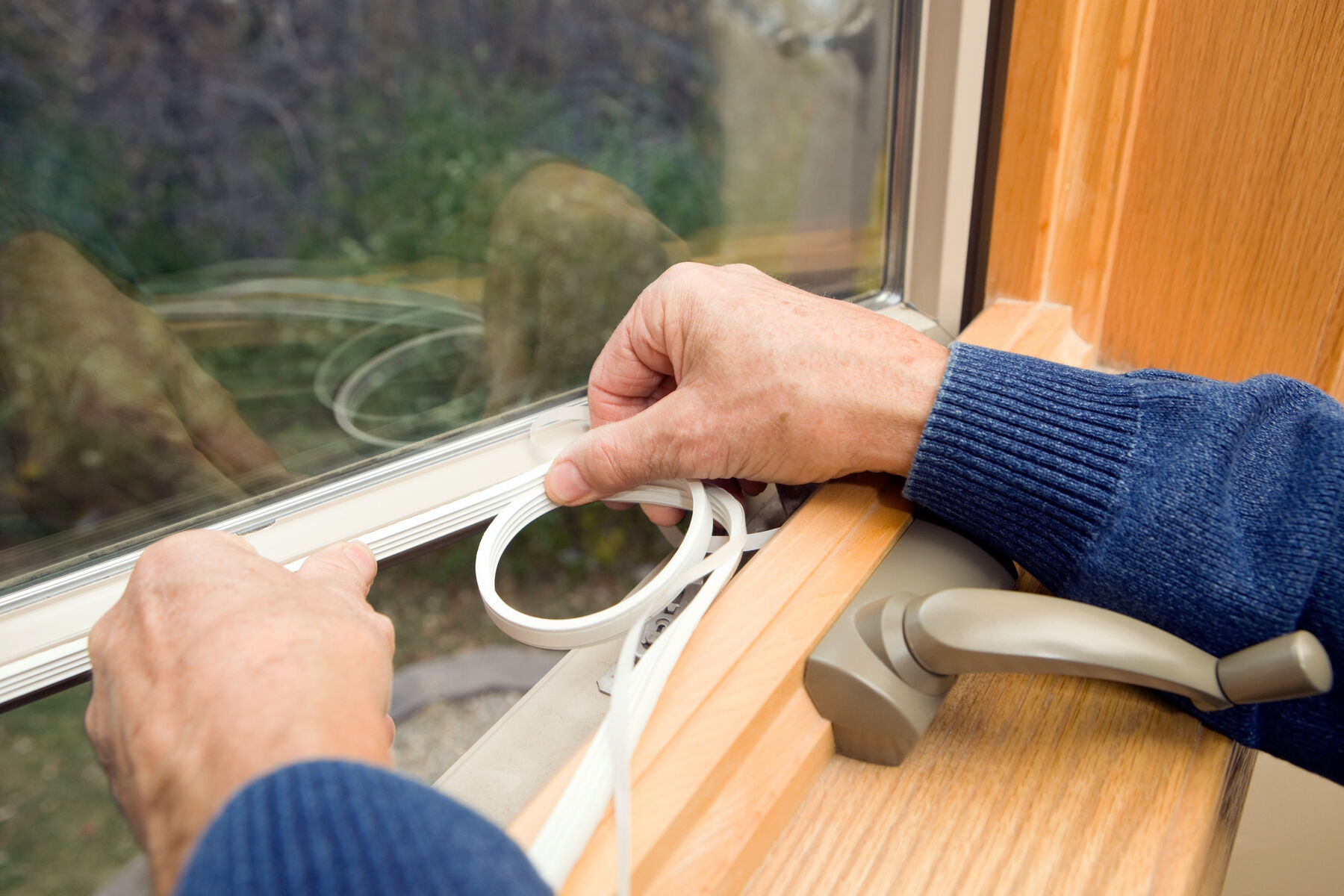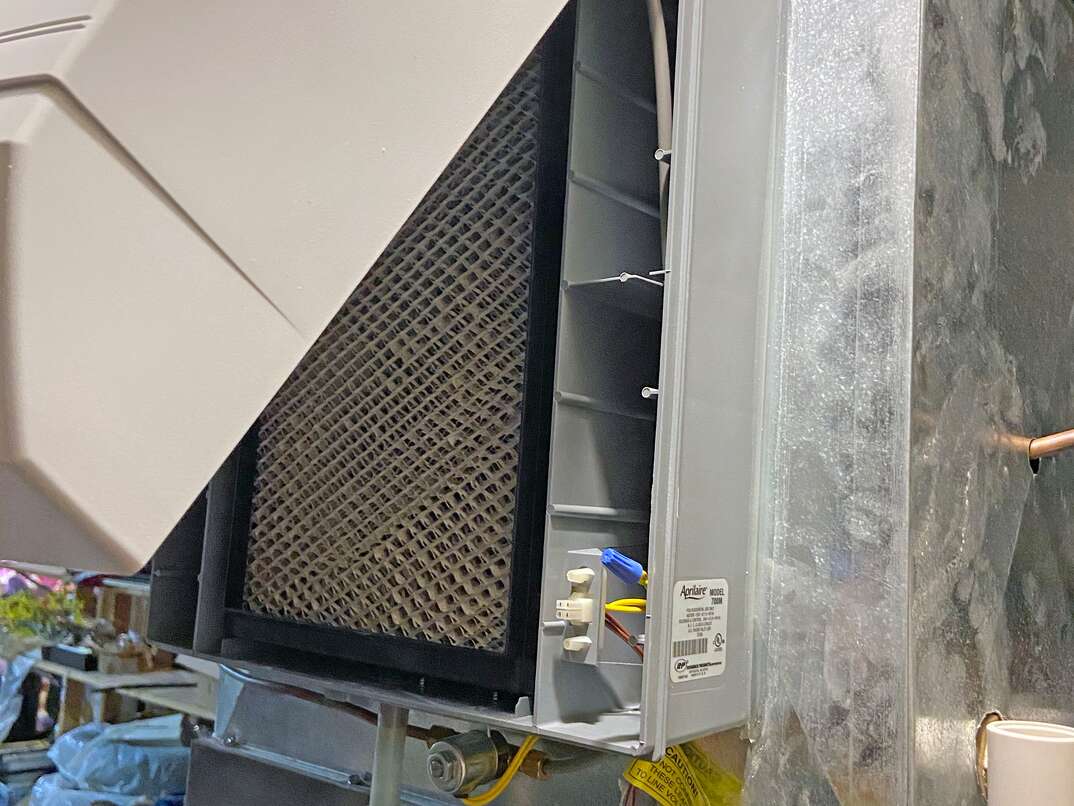Why Your Ceiling Fan Is Making Noise (And How to Make It Stop)
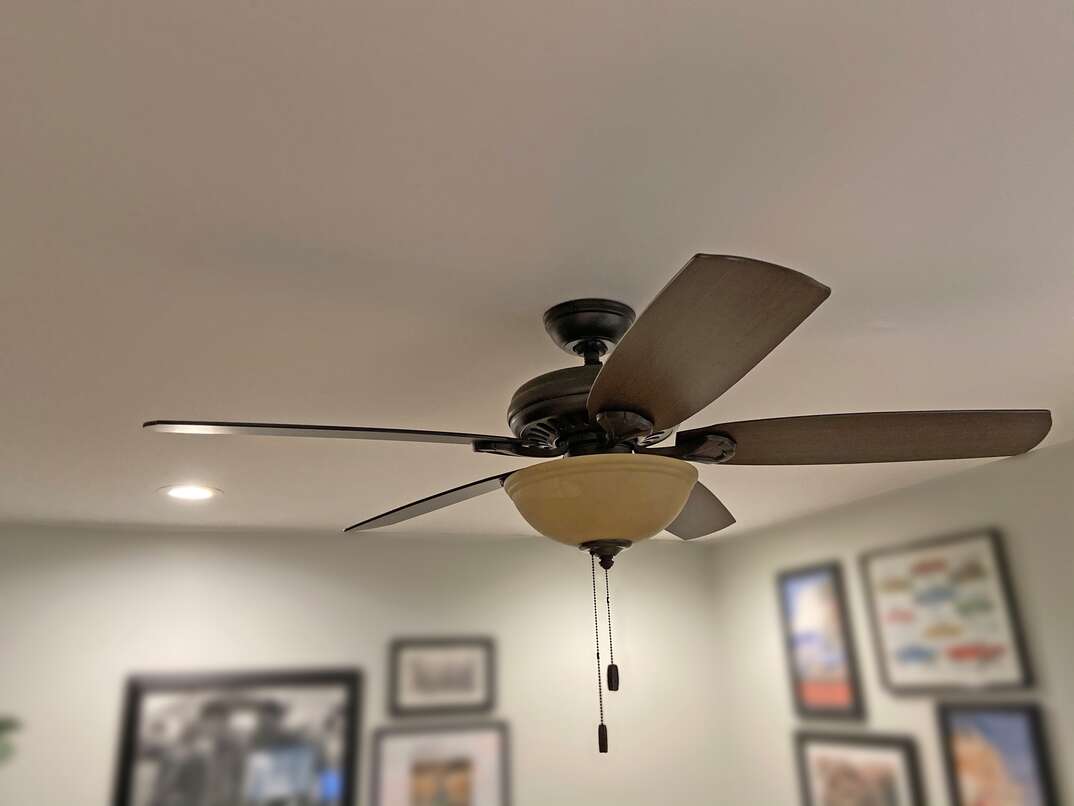
Flipping on the ceiling fan is the perfect way to get the air moving for improved circulation and to cool off. However, that cool, relaxing feeling quickly fades away when you have a ceiling fan making noise.
This May Also Interest You: Where There’s a Wobble, There’s a Way: How to Fix a Wobbly Ceiling Fan
From clicking to grinding, ceiling fans can make a variety of noises that mean they need a little attention and possibly some repairs.
So, Why’s My Ceiling Fan So Loud?
Ceiling fans can make a variety of noises, depending on what’s wrong with them. Here are some common causes:
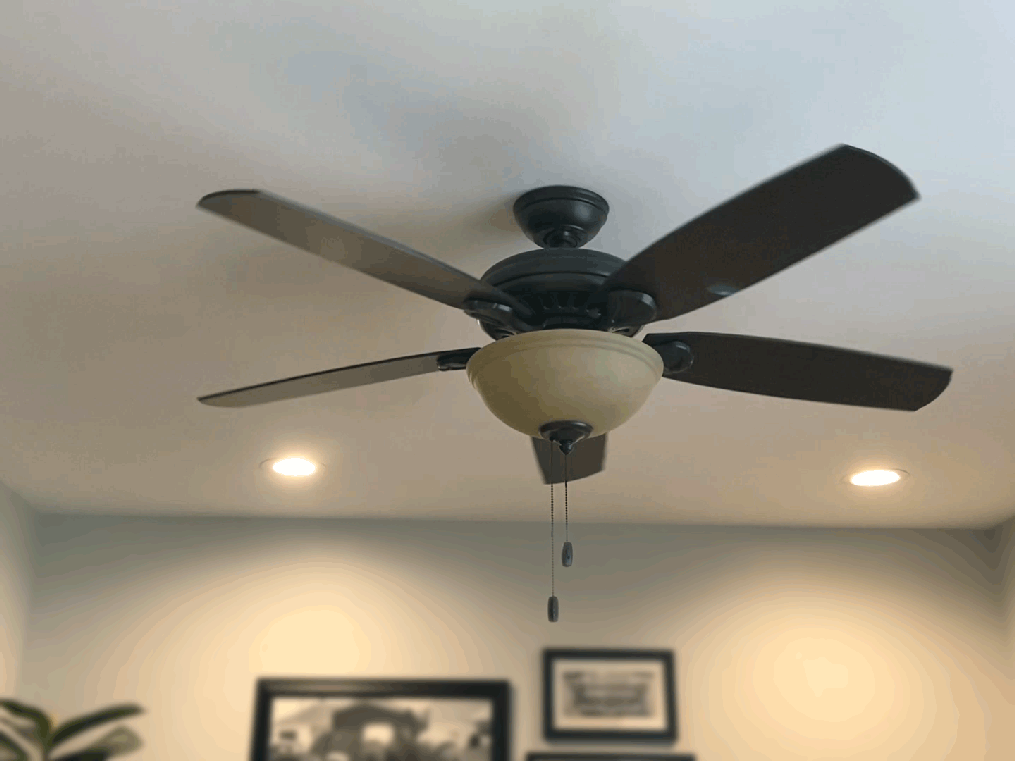
Clicking Ceiling Fan Noise
A clicking ceiling fan noise usually means one or more of the blades are loose. If your ceiling fan has a light on it, the light kit could also cause a clicking sound if it becomes loose. You might notice that the ceiling fan is wobbly if the blades are loose. It's relatively easy to fix this issue; you just need to tighten the screws.
Rattling Noise
Your ceiling fan may also start rattling if things get loose. This sound may be caused by a screw coming loose and falling into another part of the ceiling fan, such as inside the light shade. You might also get a rattling noise if your bracket is loose or wasn't installed correctly. Redoing the ceiling fan installation or tightening the bracket can help.
Grinding Noise
If you hear a grinding ceiling fan noise, it could indicate a couple of different problems. One is the blades being unbalanced, often due to dirt buildup on them. It could also mean that the motor needs oil. Your ceiling fan manual should tell you what type of oil to use and where to find the oil hole, which is usually close to the down rod.
Humming Noise
Humming that comes from the ceiling fan could be due to an electrical issue. You might hear the humming noise more frequently if your ceiling fan is connected to a dimmer switch. There could be a wiring issue inside the fan, or the motor could be going bad. Electrical issues should always be left to a licensed electrician.
Scraping Noise
A scraping noise can happen if the canopy, which is the part that touches the ceiling, is loose. Grab a ladder or step stool to see if the canopy feels loose. It should be snug. If it's not, it needs to be tightened.
More Related Articles:
- How Much Does It Cost to Install a Ceiling Fan?
- 4 Ways to Clean Your Ceiling Fan (No. 3 Is Pretty Clever!)
- How to Wire a Ceiling Fan
- What’s the Span of Your Fan? Here’s How to Measure for a Ceiling Fan
- How to Remove a Ceiling Fan
How to Fix a Noisy Ceiling Fan
Now you know what’s wrong with the fan, but how do you get the noises to stop? Try these fixes:
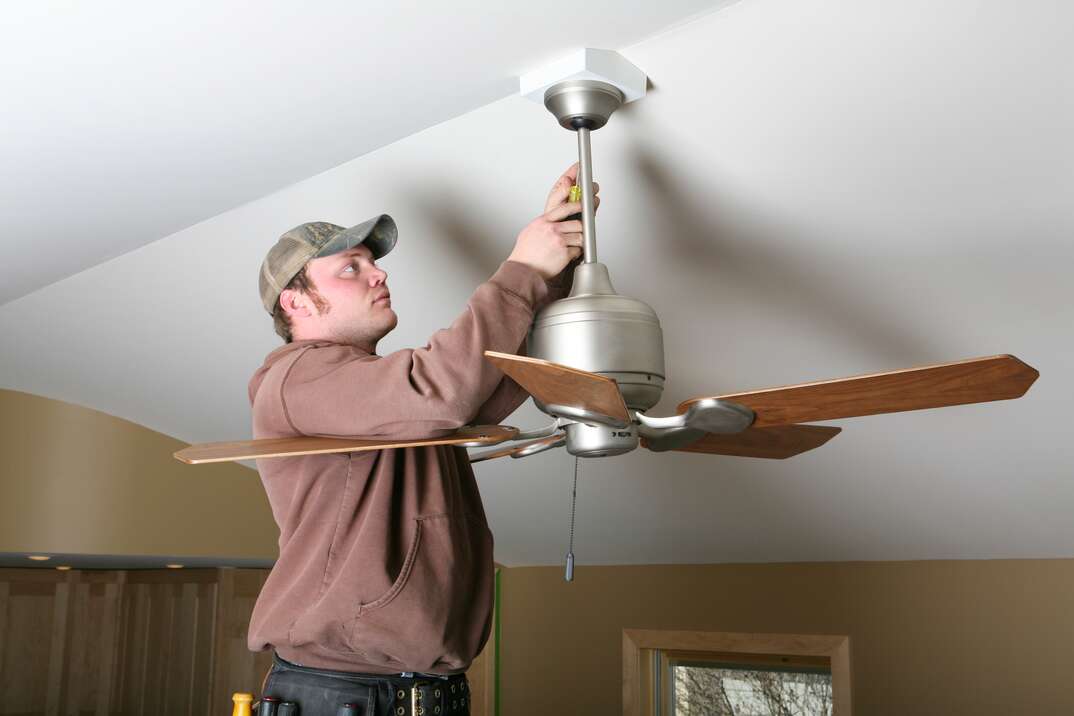
Inspect the Fan
Start by observing the fan while it's on and off. Look for wobbling while it operates. Check for dirty blades or damage to the blades, such as warping or cracks.
Clean the Fan
Your ceiling fan could be off-balance because of dirt buildup on the blades. Cleaning the ceiling fan can help correct this situation. A duster might help remove some of the dust, but you likely need a damp cleaning cloth to remove the stuck-on grime from each blade.
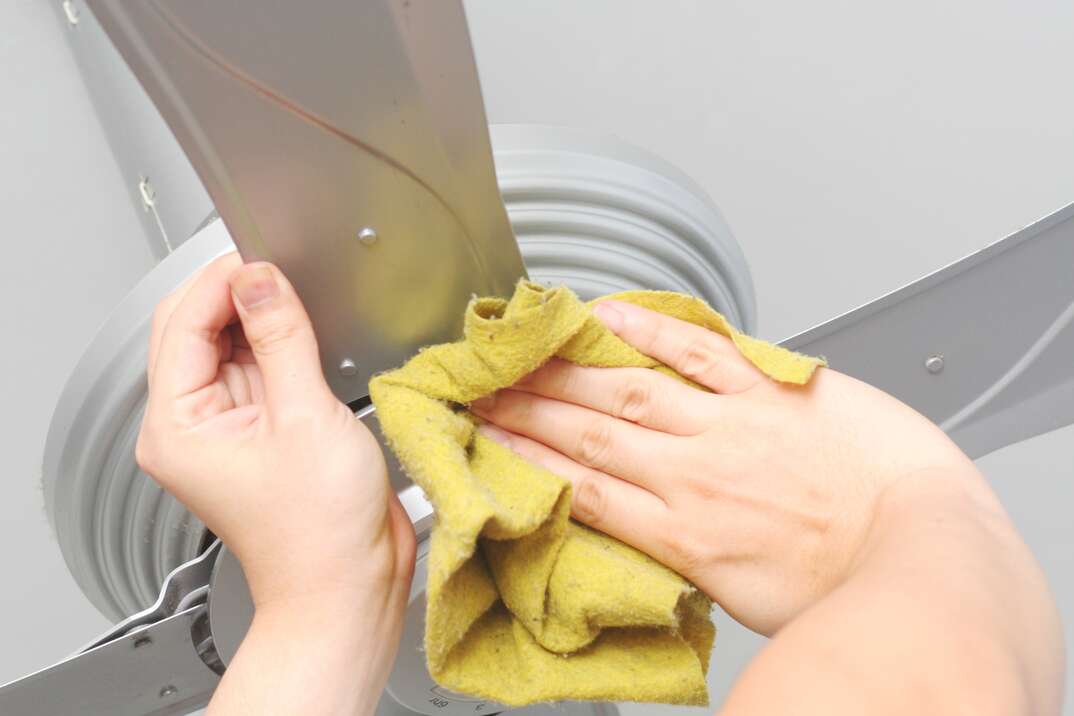
Tighten Screws
Ceiling fans have several screws that can come loose and cause noises. Tighten the screws that hold the blades in place. If your ceiling fan has a light kit attached, check the screws that hold it in place.
Try a Balancing Kit
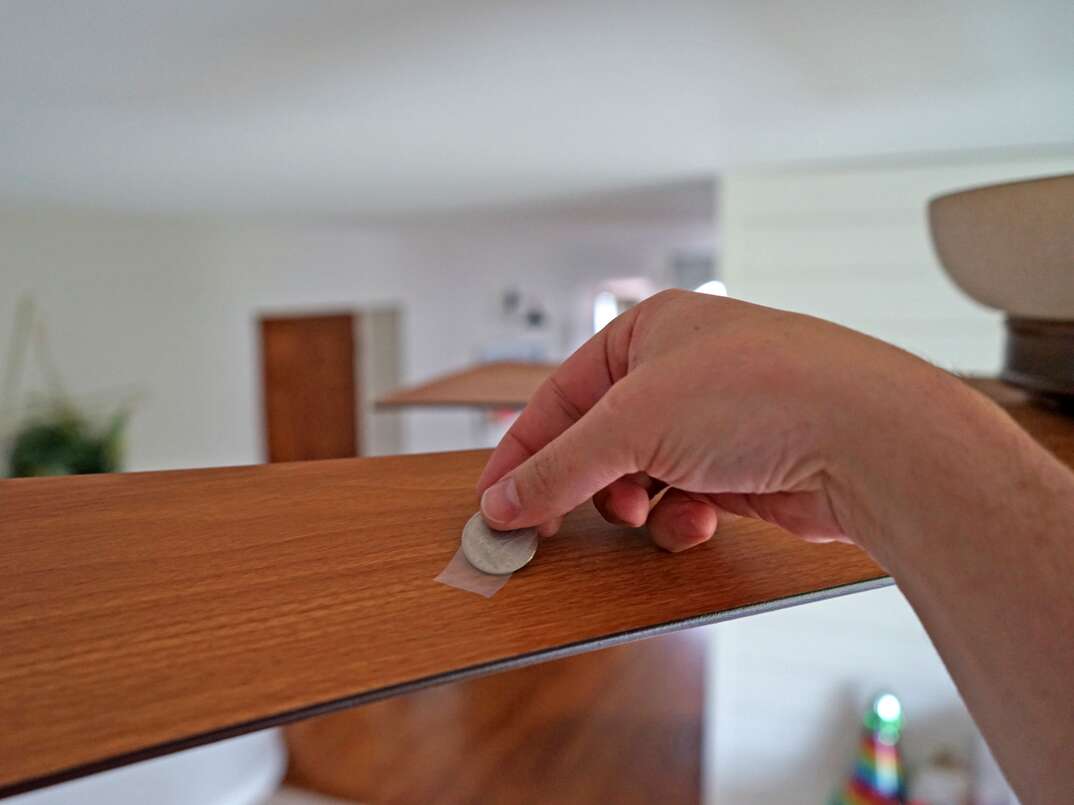
If your fan blades are still out of balance even after cleaning them, you can get a ceiling fan balancing kit. These kits typically include balancing clips to help you find the problem and weights to put on the blades to balance it out. The instruction manual guides you through the process.
Secure the Canopy
If the ceiling fan canopy is loose, you need to tighten it. Some canopies can be tightened by hand. Others require a screwdriver or another tool to tighten the fasteners that hold the canopy in place.
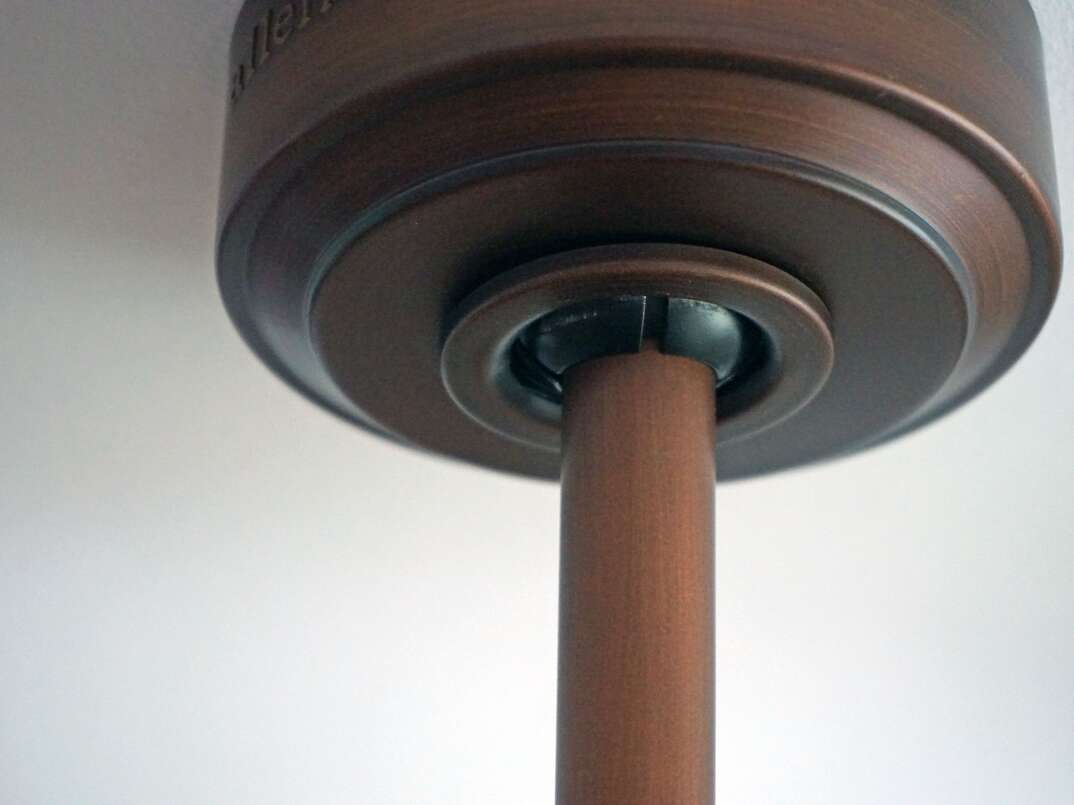
Add Oil
Find the oil hole near the down rod. Insert a pipe cleaner into the hole. If it comes out dry, you need to add oil. Your owner's manual should tell you what type of oil to use, or you can get all-purpose fan oil.
Replace Damaged Blades
If any of the ceiling fan blades are warped or damaged, replacing them might be necessary.
If All Else Fails...
If these simple, DIY repairs don't cut down on the noise, contact an electrician. The problem could be something more serious that requires a professional repair or replacement.
